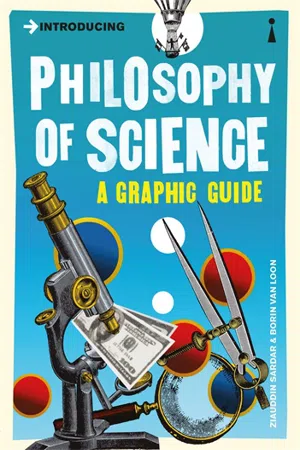
eBook - ePub
Introducing Philosophy of Science
A Graphic Guide
Ziauddin Sardar,Borin Van Loon
This is a test
Condividi libro
- 176 pagine
- English
- ePUB (disponibile sull'app)
- Disponibile su iOS e Android
eBook - ePub
Introducing Philosophy of Science
A Graphic Guide
Ziauddin Sardar,Borin Van Loon
Dettagli del libro
Anteprima del libro
Indice dei contenuti
Citazioni
Informazioni sul libro
What do scientists actually do? Is science "value-free"? How has science evolved through history? Where is science leading us? "Introducing Philosophy of Science" is a clear and incisively illustrated map of the big questions underpinning science. It is essential reading for students, the general public, and even scientists themselves.
Domande frequenti
Come faccio ad annullare l'abbonamento?
È semplicissimo: basta accedere alla sezione Account nelle Impostazioni e cliccare su "Annulla abbonamento". Dopo la cancellazione, l'abbonamento rimarrà attivo per il periodo rimanente già pagato. Per maggiori informazioni, clicca qui
È possibile scaricare libri? Se sì, come?
Al momento è possibile scaricare tramite l'app tutti i nostri libri ePub mobile-friendly. Anche la maggior parte dei nostri PDF è scaricabile e stiamo lavorando per rendere disponibile quanto prima il download di tutti gli altri file. Per maggiori informazioni, clicca qui
Che differenza c'è tra i piani?
Entrambi i piani ti danno accesso illimitato alla libreria e a tutte le funzionalità di Perlego. Le uniche differenze sono il prezzo e il periodo di abbonamento: con il piano annuale risparmierai circa il 30% rispetto a 12 rate con quello mensile.
Cos'è Perlego?
Perlego è un servizio di abbonamento a testi accademici, che ti permette di accedere a un'intera libreria online a un prezzo inferiore rispetto a quello che pagheresti per acquistare un singolo libro al mese. Con oltre 1 milione di testi suddivisi in più di 1.000 categorie, troverai sicuramente ciò che fa per te! Per maggiori informazioni, clicca qui.
Perlego supporta la sintesi vocale?
Cerca l'icona Sintesi vocale nel prossimo libro che leggerai per verificare se è possibile riprodurre l'audio. Questo strumento permette di leggere il testo a voce alta, evidenziandolo man mano che la lettura procede. Puoi aumentare o diminuire la velocità della sintesi vocale, oppure sospendere la riproduzione. Per maggiori informazioni, clicca qui.
Introducing Philosophy of Science è disponibile online in formato PDF/ePub?
Sì, puoi accedere a Introducing Philosophy of Science di Ziauddin Sardar,Borin Van Loon in formato PDF e/o ePub, così come ad altri libri molto apprezzati nelle sezioni relative a Filosofia e Filosofia ed etica nella scienza. Scopri oltre 1 milione di libri disponibili nel nostro catalogo.
Informazioni
Argomento
FilosofiaCategoria
Filosofia ed etica nella scienzaThe Nature of the Beast

Our world is shaped and driven by science. Almost every benefit of modern life – from antibiotics to computers, our understanding of human evolution to our ability to land a satellite on Saturn – is a product of science. For most people, progress is simply another term for advances in scientific knowledge and benefits derived from new discoveries of science.
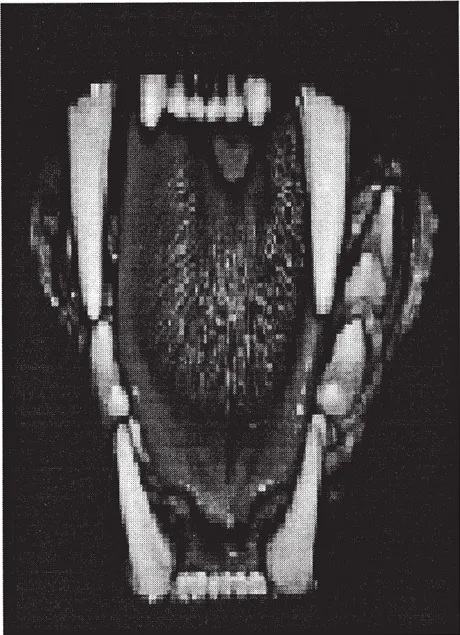
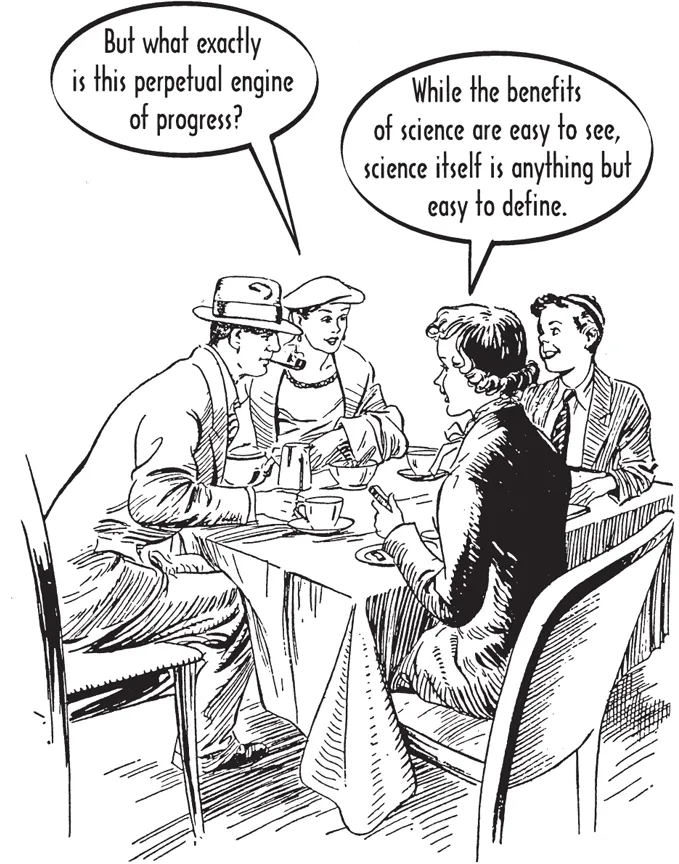
But what exactly is this perpetual engine of progress? While the benefits of science are easy to see, science itself is anything but easy to define.
Is Science “Absolute Objectivity”?

Until quite recently, Western tradition saw science as the quest for objective knowledge of nature and reality. Scientists were regarded as quasi-religious supermen, heroically battling against all odds to discover the truth.

And the truths they wrestled out of nature were said to be absolute … … objective, value-free and universal.
As one sociologist in the 1940s described it, science reflects the character of nature itself: “The stars have no sentiments, the atoms no anxieties which have to be taken into account. Observation is objective with little effort on the part of the scientist to make it so.”

Or, as J.D. Bernal (1901–71), the radical historian of science, put it …
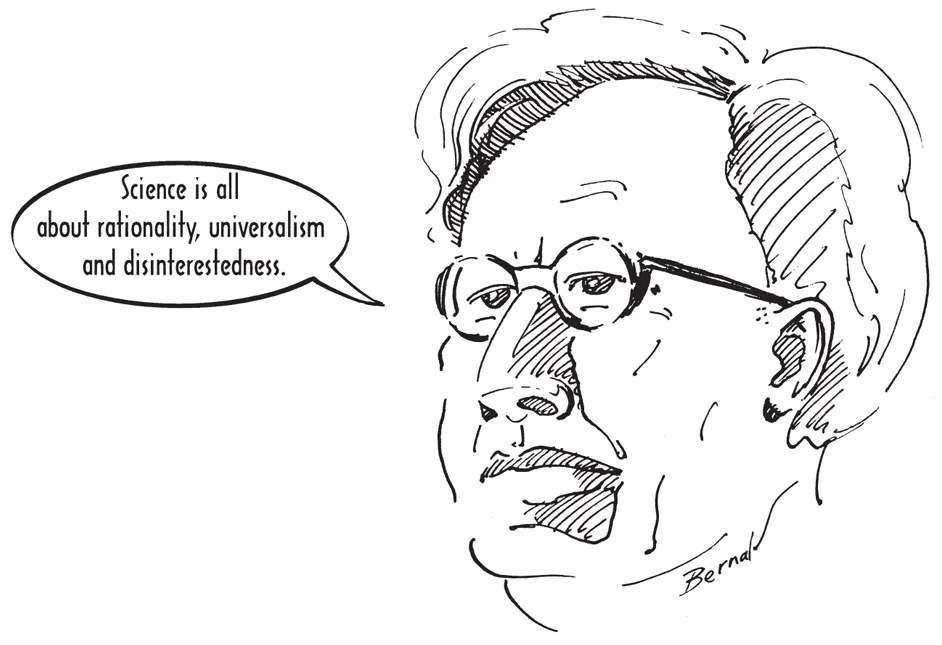
Science is all about rationality, universalism and disinterestedness.
Do We Trust Scientists?

But this picture of truth-loving and truth-seeking scientists working for the benefit of humanity is rather at odds with the public conception of science and scientists. Most people are not “anti-science”. We recognize the potential that science has for making our lives healthier and easier.
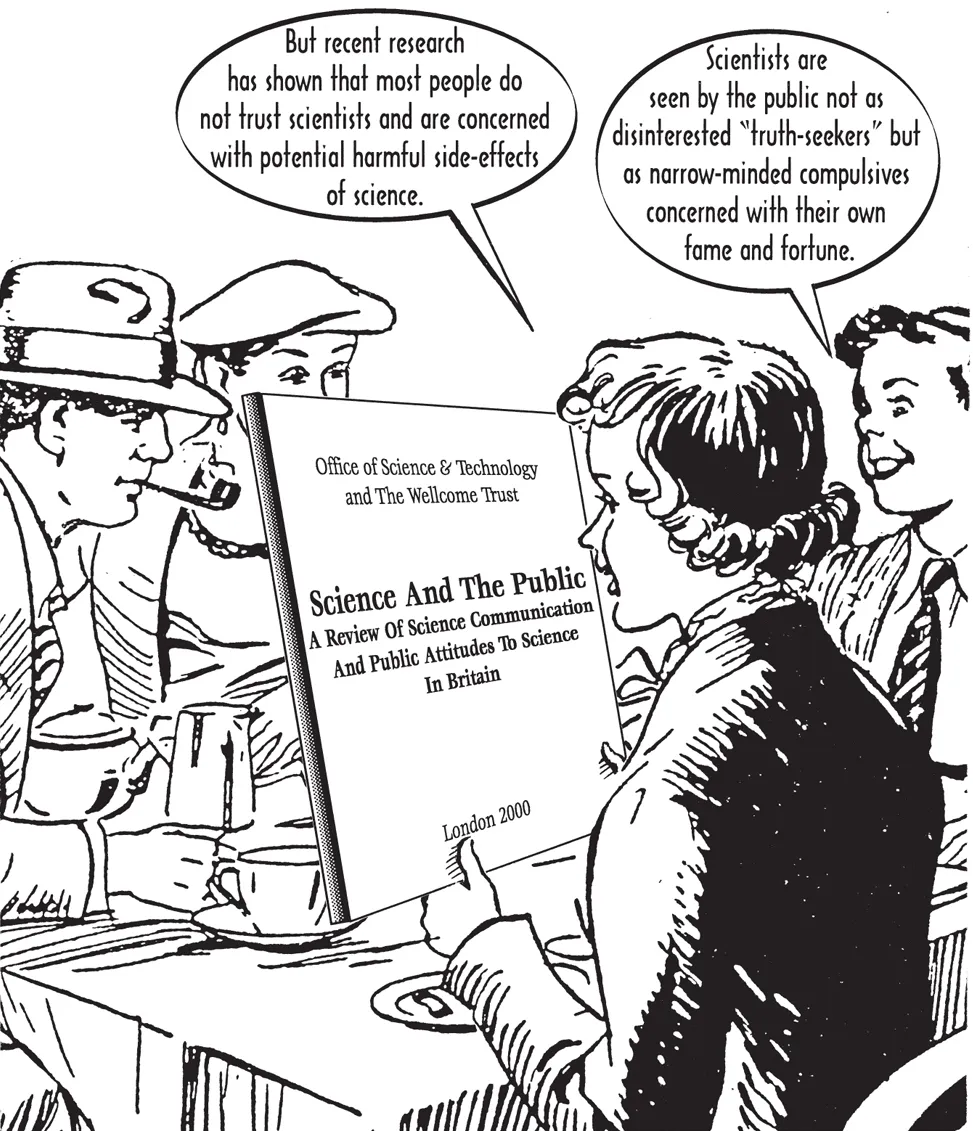
But recent research has shown that most people do not trust scientists and are concerned with potential harmful side-effects of science. Scientists are seen by the public not as disinterested “truth-seekers” but as narrow-minded compulsives concerned with their own fame and fortune.
The view of the scientists we find in popular literature and film is even more scathing.
Dr Henry Frankenstein of Mary Shelley’s Frankenstein (1818) is not the monster, but …
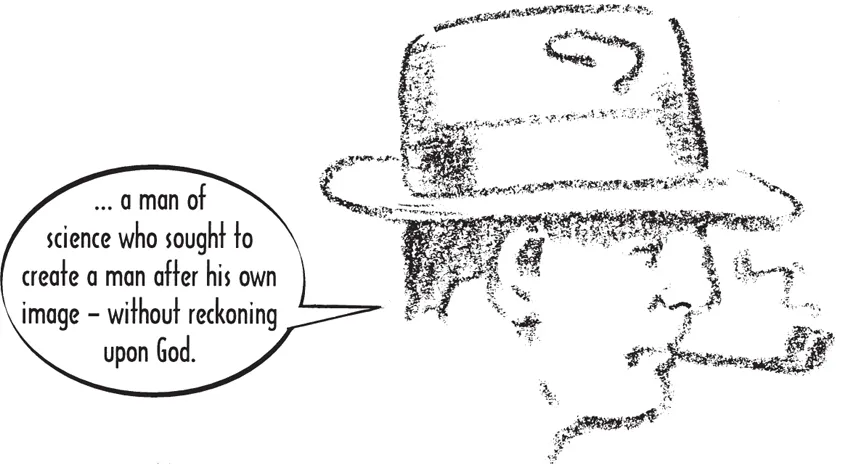
… a man of science who sought to create a man after his own image – without reckoning upon Gad.
In Robert Louis Stevenson’s Dr Jekyll and Mr Hyde (1886), Jekyll is a restless young scientist who discovers a concoction that turns him into his alter ego …

… the repellent and murderous and murderous Mr Hyde.
In H.G. Wells’ The Island of Doctor Moreau (1896), a scientist develops mutant life-forms that live in pain and misery …

… we violently revolt against out creator.
In the classic film Dr Strangelove (1964), the title character, played by Peter Sellers, is a paraplegic Nazi scientist …
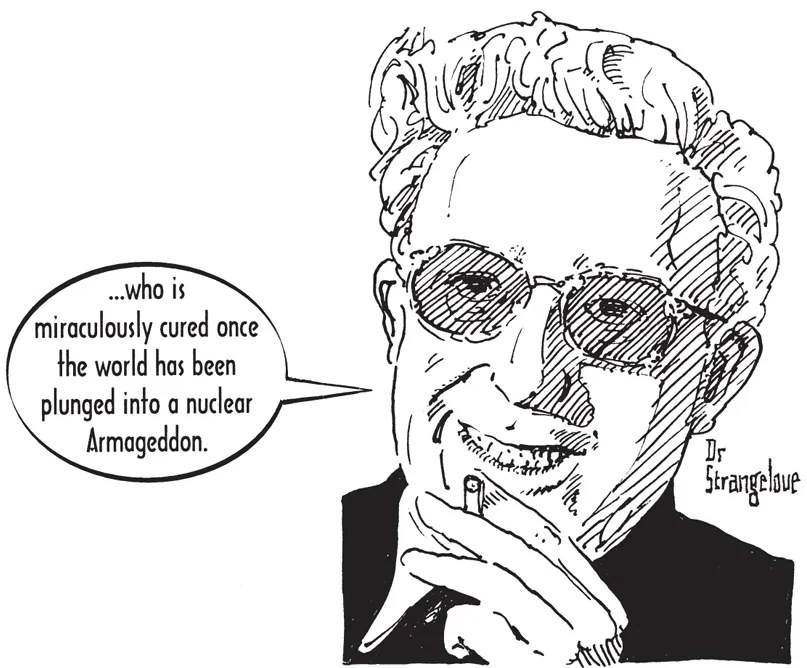
… who is miraculously cured once the world has been plunged into a nuclear Armageddon.
The Boys from Brazil (1978) shows scientists as evil Nazis hell-bent on recreating a race of Hitlers.

In Batman and Robin (1997), both villains are scientists:

…the evil Mr Freeze… …and the misguided Miss Poison Ivy.
Why do the popular perceptions of science and scientists differ so radically from the scientists’ own self-image as brilliant pioneers deserving of admiration, funding and blind trust? Perhaps because, apart from bringing benefits, science has also posed serious threats to humanity.

Science has given us the bomb, as well as biological and chemical weapons of mass destruction. It introduced the spectre of eugenics and has brought us to the brink of human cloning.
The by-products of science, such as nuclear waste and chemical pollution, are destroying ecosystems on local, regional and global scales. So, science brings us benefits as well as costs. Perhaps it was in an effort to present a more deflated image of science that the Nobel Prize physicist Lord Rutherford (1871–1937) said:
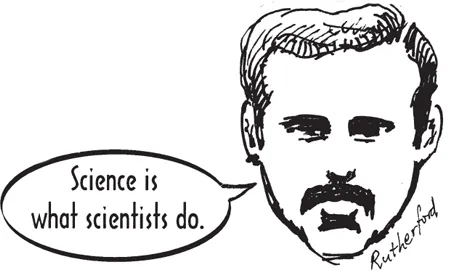
Science is what scientists do.
What Do Scientists Actually Do?

Here are some examples of the negative things that scientists actually do, as reported by the media.
The Indep...